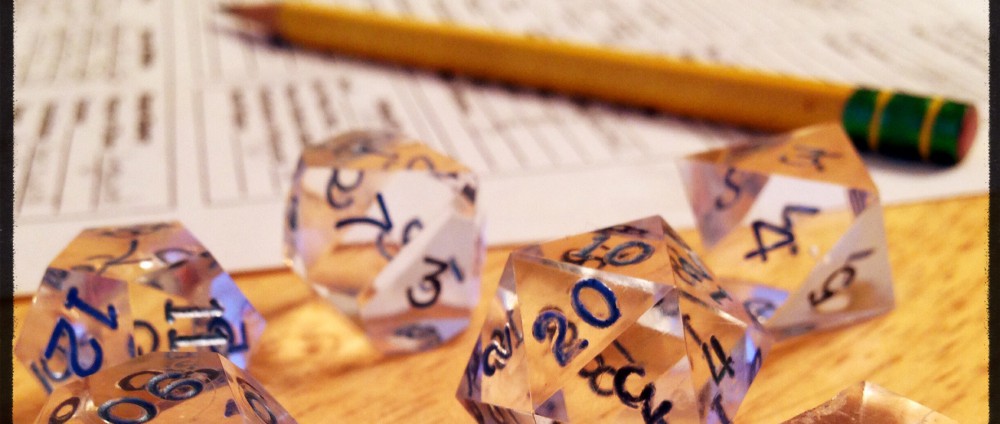I got paid today. The money from that paycheck gets mixed in with the tips I make as a delivery driver and the money my wife makes at her job in order to form a pool of cash that is almost big enough to pay the rent, the bills, and keep us fed and clothed. The calculations we get into on what we can afford, how we can afford it, and what must be deferred take up an awful lot of our time. Thinking about this led me to a question.
Why is regularly eating only a thing in games when playing Sims?
There are a ton of board games that exist as resource management challenges, but a lot of the major tabletop RPGs seem largely unconcerned with where your character’s next meal comes from. I’m writing a longer piece on this for my upcoming book on coin and finance in fantasy roleplaying, but for now let me point you to what got me thinking about this: A thread in the Paizo forums where the Wealth By Level system is referred to as a 2nd XP track. That’s really what money represents in Pathfinder (and in its D&D ancestors), especially since 3rd edition kicked off: something gathered in increasing amounts based on the challenge of the monster and transformed into new and better abilities.
The notion of how money is used in games first hit me when I started playing Vampire: The Masquerade. Resources was now something you could invest character points into. I had played Shadowrun before, with its old “lifestyle” system, but my GM didn’t spend a lot of time thinking about it, and so neither did I. When Mage: The Ascension came out, the Resources background disappeared from the book, later explained by the writers that, in their view, mages would have zero trouble paying the rent, as there were dozens of ways to come up with wealth through use of magick. I always found this answer unsatisfying, perhaps because, by that point, I had begun my path towards becoming an armchair economist. Resource use and dealing with scarcity make up a lot of what we do in our lives. There’s never enough time, enough money, enough of most anything, and the management of our desires against that scarcity (much to the dismay of most Buddhists) is at the heart of stories both personal and profound. D&D, and even Shadowrun, make the gathering of resources a by-product of the PCs usually quasi-legal (at best) activities. White Wolf, and their Onyx Path descendants, invite the players to come up with a description of how they pay the bills. Most games, however, just hand-wave the whole thing.
There’s nothing wrong with that, especially if yours is the sort of game that wants to get on with the action. Rhetorically speaking, however, our exigencies come from our own worldview, and that worldview is, perhaps inevitably, informed by our views on wealth and scarcity. One of the most subtly realistic (and painful) wealth mechanics can be found in Call of Cthulhu with its infamous Credit Rating stat. In 1920’s games, the stat not only represents your resources, but also your social status, bringing the challenge of class distinction home as one more hurdle to overcome, as though the Great Old Ones were not a big enough problem. In my current CoC game, none of my players have a Credit Rating over 25%, and they’re all feeling the sting of social stigma, especially the psychoanalyst, who gets sneered at by medical professionals both for his shabby way of living and for his devotion to that quack, Freud. The challenges presented by their social status have begun to inform their decisions about how they intend to deal with the old professor and his telescope, which is pointed at an unfortunate patch of night sky (Hint: it will probably involve arson).
Our ways and means inform what we consider to be realistic options in our lives and what we consider to be pipe dreams (My wife and I refer to these as “lottery goals,” as in things we’d do if we won). How we use resources in games is dependent on the story we’re planning to tell, but it is certainly worth our time to consider how (or if) we should make them part of the story. They’re certainly part of our own.

I really look forward to seeing your further ruminations on this subject. I always want to incorporate some fashion of resource management into the games I run, but finding a way that my players find fun can be difficult, especially when one considers the amount of time it usually takes.
It seems like a great space for a software solution.
LikeLike
As a corollary, as a player I have often found that attempting to play a character whose strength is resource accumulation is often unsatisfactory because the GM doesn’t know how to deal with it. This has resulted in resources either being made inapplicable to the majority of challenges or crippling conditions that effectively removes its usefulness.
To be fair, it’s difficult problem to work with; in many situations, money is OP. The trick is in finding the happy medium of challenge and reward for Mr. Moneybags.
LikeLike
I think we get nervous around resource power as a super power (Even though it can be argued it is the primary power of heroes like Tony Stark and Bruce Wayne) because we have trouble readily conceptualizing its limits. As the Dutch have shown us, money solves most problems, either directly or by purchasing a solution. I think part of the answer may lie in stories like Batman or the Shadow, where the nemesis of the rich guy is a zealot, or doesn’t directly target our moneybags hero, making the scope too broad for money to fix.
LikeLike